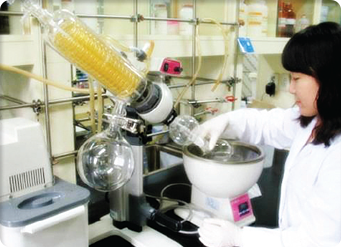mobile menu open

-
About the College
About the College
-
Departments
Departments
-
Key Business & Appendages
Key Business & Appendages
-
Student Support
Student Support
- News
Departments
INTRODUCTION
- Home
- Departments
- Departments
- Department of Organic Materials Engineering
- Department of Architecture
- Department of Architectural Engineering
- Department of Civil Engineering
- Department of Environmental Engineering
- School of Mechanical Engineering
- Department of Mechatronics Engineering
- Department of Naval Architecture and Ocean Engineering
- Department of Aerospace Engineering
- Department of Materials Science and Engineering
- Department of Organic Materials Engineering
- Department of Chemical Engineering and Applied Chemistry
- Department of Electrical Engineering
- Department of Electronics Engineering
- Department of Radio & Information Communications Engineering
- The Division of Computer Convergence
- Department of Smart City Architectural Engineering
- Department of Autonomous Vehicle System Engineering
- Department of Artificial Intelligence
- Department of Energy Engineering
- School of information Communications Covergence Engineering

Department of Organic Materials Engineering
Department of Organic Materials Engineering
Introduction
- Organic materials have begun to be widely used since the mid-20th century. And now its industry of Korea is top 5 in the world in the producing quality. Our goal is to produce creative organic materials engineers who can effectively contribute to the technical fields in the industry, academia, and government. Organic materials engineers seek to understand and manipulate the basic structure of organic and hybrid materials in order to make the products of technology faster, stronger, lighter, brighter, safer, and better suited to human needs.
- In the undergraduate course, the curriculum includes the synthesis, chemistry, physics, rheology, and processing of organic materials. In the graduate course, the curriculum covers the brand new topics about the polymer and fiber materials for the high performance chemical materials, energy, electronics, automobiles, and medical engineering as a core of information technology (IT)·biotechnology (BT)·nanotechnology (NT)·energy and environmental technology (ET) industry.
- Advanced organic materials engineering is the discipline devoted to helping human beings use materials more effectively and efficiently. Organic materials scientists and engineers focus on the manipulation of atomic scale structure to change materials properties. This focus has pushed our discipline to the forefront of developing and applying new tools to observe and control matter at the smallest scales. These advances continue to play a crucial role in the convergence of fields such as NT, BT, ET, and information communication technology (ICT) for the future century.
Faculty
| Name | Title | Major | Phone |
|---|---|---|---|
| Juwhan Ryu | Professor | Physical Chemistry of Polymers | +82 42 821-6666 |
| Lee, Taek Seung | Professor | Organic Materials Chemistry, Organic Materials for Photonics and Electronics |
+82 42 821-6615 |
| LEE, SEUNG GOO | Professor | TECHNICAL TEXTILES, FIBER COMPOSITES, NANOFIBER Research |
+82 42 821-6616 |
| Park, Won Ho | Professor | Polymer Chemistry, Functional Biopolymers, Nanostructured Materials |
+82 42 821-6613 |
| Son, Young A | Professor | Organic Materials Engineering, Functional Colorant Materials Engineering |
+82 42 821-6620 |
| Young Jin Kim | Professor | Functional polymer | +82 42 821-6670 |
| SungYun Yang | Professor | Bio-functional polymer | +82 42 821-6665 |
| Kang Moo Huh | Professor | Polymer Synthesis | +82 42 821-6663 |
| Jae-Hak Choi | Professor | Polymer Materials | +82 42 821-6664 |
| Jeong, Young Gyu | Professor | Polymer and Fiber Materials, Functional Convergence Materials, Nanocomposites |
+82 42 821-6617 |
| Koo, Jaseung | Professor | Graphene Nanocomposites, Li-ion Batteries, Optoelectronic Fibers, Neutron Scattering |
+82 42 821-6619 |
| Woo-Jin Song | Professor | Energy Engineering | +82 42 821-6669 |
| Hyeong Min Jin | Professor | Molecular self-assembly | +82 42 821-6667 |
| Jun Mo Koo | Professor | Sustainable Polymer Synthesis | +82 42 821-6668 |
| Tae Hyun Park | Professor | Polymer Display and Electrolytes | +82 42 821-6618 |

Career Opportunities
- Approximately 400 graduate and undergraduate students and 15 faculty members comprise our department. More than one third of our undergraduates subsequently earn graduate or professional degrees, while others find employment in chemistry, materials, plastics, textiles, medical/biomedical, automotive, electronics, and other consumer products industries. We are very proud of our much higher graduate employment rates than the average of the engineering college’s.
- After the graduation, students can work in the industries related to chemicals such as LG, Samsung, Hyosung, Doosan, Hanhwa, SK, Kolon, and Hankook Tire, etc. Other job opportunities are in the government established research institutes such as KIST, KRICT, KAERI, KIER, etc.